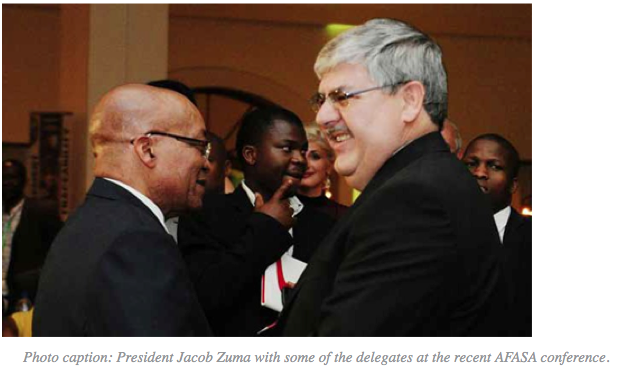Agriculture is a key job driver
Agriculture is a key job driver sadminThe agricultural sector is a key component of the economy and plays a crucial role in government’s efforts to drive and promote food security and economic growth, said President Jacob Zuma recently.
 Speaking at the first annual general meeting of the African Farmers’ Association of South Africa (AFASA) held in Pretoria, the President added, “Agriculture is a crucial sector and is one of the six job drivers identified in the New Growth Path”.
Speaking at the first annual general meeting of the African Farmers’ Association of South Africa (AFASA) held in Pretoria, the President added, “Agriculture is a crucial sector and is one of the six job drivers identified in the New Growth Path”.
AFASA is a representative and unitary body of African farmers, committed to driving the establishment of competent and successful commercial African farmers in South Africa.
High food prices
President Zuma said AFASA’s meeting was taking place at a time when South Africa and the international community were battling the threat of high food prices.
“Our people are feeling the effects of the changing international economic climate. A basket of goods is much more expensive compared to what was paid for it a few years ago. The poor and the working class are adversely affected by this state of affairs.”
He noted that government’s proposed new approach to land reform, which is contained in the National Development Plan, would need the support of the farming community to be successful.
The plan includes a district-based approach to land reform and its financing.
This will see government buying land at 50 per cent of its market value from farmers who are under extreme financial pressure, land held by absentee landlords willing to exit and land in deceased estates.
Reversing imbalances
Minister of Rural Development and Land Reform Gugile Nkwinti said government would work with the association to reverse the imbalances of the past.
“The democratic state inherited a colonial apartheid economy based on racial capitalism. This must change radically to reflect the country’s demographics. We are compelled to execute change within our framework, which provides for a just and equitable principle in the public interest,” he said.
“We must grow our economy to create a solid platform for combating poverty, unemployment and income inequality which are nothing but a symptom or manifestation of underdevelopment in certain areas of our society brought about by the racial structure of economy.”
He added that the biggest challenge South Africa was facing was how to reverse the legacy of the 1913 Native Land Act.
“If we are to reverse this legacy comprehensively we must not only think about land changing hands between black and white. We must also think about how we reverse the devastation of the environment, as a result of over-population and over-grazing,” he added.